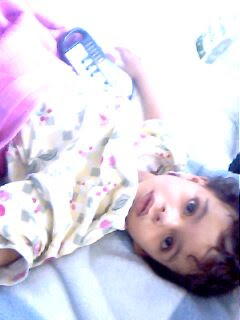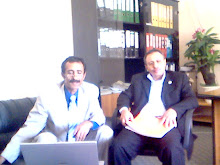PROPOSAL FOR THE DEVELOPMENT OF PEDIATRIC CARDIAC SERVICES AT THE CARDIAC CENTER OF THE MILITARY HOSPITAL OF YEMEN IN SANA’A
Re-Submitted for consideration on October 14, 2009
Prepared by; William M Novick, M.D.
Founder and Medical Director
International Children’s Heart Foundation
Paul Nemir Endowed Professor
Surgery and International Child Health
University of Tennessee Health Sciences Center
Memphis, Tennessee, United States
HISTORICAL PERSPECTIVE:
A number of attempts have been made since 2000 to initiate locally operated pediatric cardiac services in Yemen. To date there is no single center recognized as capable of providing comprehensive pediatric cardiac care to the children of Yemen with heart disease, either congenital or acquired. Two small pediatric cardiac programs exist in Sana’a currently, but both are supported in a non-structured fashion by a variety of visiting expert teams from Saudi Arabia, Italy and Germany. In the absence of these visiting teams local teams provide surgical intervention only to those children with simple defects, and in small numbers.
DEMOGRAPHICS:
The estimated population of Yemen is 25,000,000 and the birth rate is approximately 42 births per 1,000 population. The resulting calculation of children born yearly with congenital heart disease would be approximately 10,000. The number of cases requiring intervention from this group every year would approximate 6,000. The infant mortality rate is estimated to be 55/1,000 live births. It should be obvious that approximately 6% of the overall infant mortality rate is directly attributable to children dying from congenital heart disease in the first year of life.
NEED FOR PEDIATRIC CARDIAC SERVICE
At the present time there is no pediatric cardiac service in Yemen providing comprehensive pediatric cardiac care, as such approximately 3,000 children born each year with CHD die, this number does not reflect the attrition of those children who survived the previous years, nor does it take into account those children dying from rheumatic heart disease. Overall one can estimate that there are up to 5,000 children dying in Yemen yearly from a combination of congenital and acquired heart diseases.
INTERNATIONAL CHILDREN’S HEART FOUNDATION
Early in 2009 a concerned Yemeni physician contacted the International Children’s Heart Foundation (ICHF) about the problem in Yemen for children with heart disease. Dr. Ahmed Nouman inquired as to whether the ICHF would be interested in visiting Yemen to assess the need for the development of a pediatric cardiac service. Dr Novick of the ICHF agreed to have the ICHF conduct a site visit to determine feasibility. The site visit was carried out by Dr. Mohamed Sulaiman, a pediatric cardiologist from Chicago who is Yemeni. Dr Sulaiman visited a number of institutions including the Military Hospital of Sana’a and determined that the site best suited for developing pediatric cardiac services would be the Military Hospital. Dr Novick made a follow-up visit to Sana’a. A series of meetings and a visit to the Cardiac Center at the Military Hospital were undertaken. At the request of the Director of Military Hospital the following proposal for the development of pediatric cardiac services in Sana’a at the Military Hospital by the ICHF was generated.
PROPOSAL “A”: Extended Start-up Assistance
Basic Model of the Plan:
Military Hospital Responsibilities; The Military Hospital will assemble the available staff components of a pediatric cardiac service, i.e., surgeons, anesthesiologists, pediatric cardiologists, intensive care unit staff (physicians and nurses) and perfusionists which will constitute the initial local team. The Military Hospital will provide an administrator dedicated to the pediatric cardiac service team who will be responsible for all non-medical matters and serve as the administrative link to the Director of the Cardiac Center and Director of the Military Hospital. The Military Hospital will ensure that all necessary hardware and instruments needed to carry out pediatric cardiac care is functional, including back-up power generators. The Military Hospital will ensure that all routine medications, supplies and basic components needed to conduct pediatric open heart surgery and diagnostic cardiac catheterizations are in place at acceptable levels. The Military Hospital will provide all necessary security for the visiting team upon its arrival until its departure. Additional responsibilities will be highlighted in the plan.
International Children’s Heart Foundation Responsibilities; The ICHF will assemble a team of specialists (surgeon, anesthesiologist, cardiologist, ICU nurse(s), OR nurse, and perfusionist) who will constitute the visiting team. Upon notice that the Military Hospital has assembled the local team and provided all necessary hardware, instruments, medications, and routine supplies the ICHF visiting team will travel to Sana’a for an extended visit (2 month increments) to assist the local team in the start-up of pediatric cardiac services. The ICHF will be responsible for bringing educational materials, specialty medications not locally available (except narcotics), and some cardiac surgical implants (not including pacemakers). For a period of 2 month increments the ICHF team will work daily with the local team to provide pediatric cardiac services to the children of Yemen. ICHF team members will work directly with their Yemeni counterparts at all specialty levels to provide this care. All clinical work is specifically dedicated to 2 purposes; 1- To provide optimal care to the patients, and 2- To provide an educational experience to our Yemeni colleagues. Simultaneously the ICHF will develop in collaboration with the local team; organizational structure for the delivery of pediatric cardiac care, quality assurance programs, research projects of a clinical nature, a patient database, continuing medical and nursing educational framework and with the medical team and hospital administration a plan for increasing public and medical professional awareness of the program through the media, print materials and networking with physicians throughout Yemen. Additional responsibilities will be highlighted in the plan.
Current Cardiac Center Infrastructure and Hardware:
The new Cardiac Center (CCMH) at the Military Hospital is state of the art. The details are well known. The CCMH has adequate OR’s and ICU beds for the performance of up to 800-1,000 cases per year. However with the potential for 2 senior level adult cardiac surgeons and a team for pediatric cardiac surgery the CCMH will be hard pressed to provide adequate ICU space for the pediatric team with the current configuration. Ideally the addition of a separate medical CCU downstairs would allow for the 7 bed ICU near the OR’s to be used as the pediatric cardiac ICU. Such a configuration would enable the adult team to provide approximately 500-600 cases per year and the pediatric team to provide 400-450 cases per year. A major issue with the pediatric team is that they need ICU space for pre-operative newborns. Newborns with critical coarctation, ductal dependent pulmonary blood flow, transposition of the great arteries, critical aortic stenosis and total anomalous pulmonary venous connection all need pre-operative stabilization in the ICU prior to surgery. Such a situation reduces the number of beds available for post-operative patients. Although routine cases such as ASD, VSD, simple Tetralogy and such usually only need 1 day in the ICU, complex cases usually require a minimum of 2 days. Hence the need for a separate pediatric cardiac ICU.



















